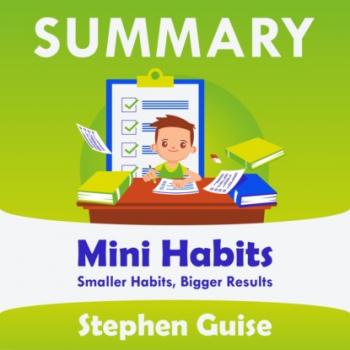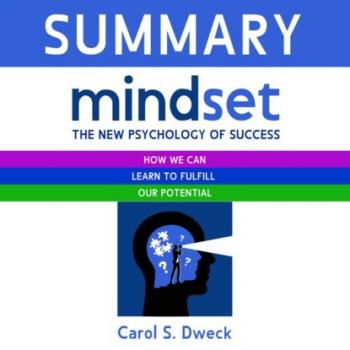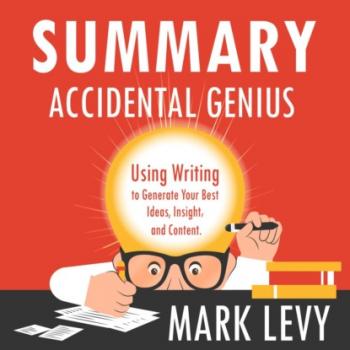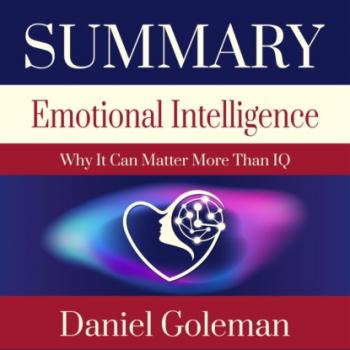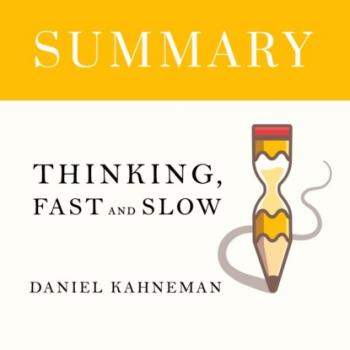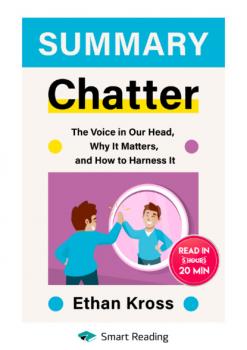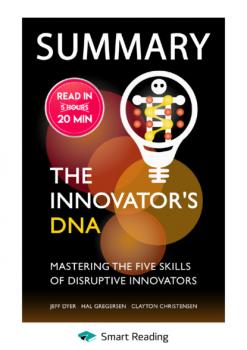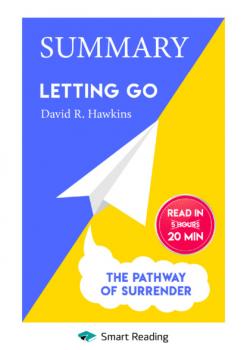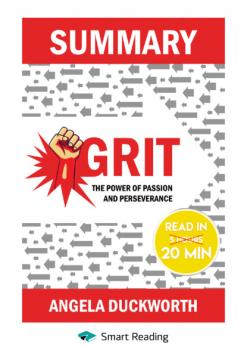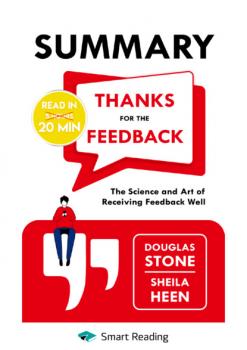Самосовершенствование
Различные книги в жанре СамосовершенствованиеSummary: Mini Habits. Smaller Habits, Bigger Results. Stephen Guise
Notice: This is a SUMMARY of “Mini Habits. Smaller Habits, Bigger Results” by Stephen Guise. In Mini Habits, Stephen Guise explains how to overcome procrastination and start living again without putting major effort into it. This is an effective remedy for those who have started to change a hundred times since Monday and failed each time. A mini habit is a tiny action that you force yourself to do every day, so tiny that it cannot cause you much inconvenience. Steven Guise's book helps get the ball rolling even for people who are deeply depressed, despondent and stuck. The mini-habit system works because you’re playing by the rules of your brain instead of wasting your energy fighting against it. The author himself, thanks to this technique, read 10 times more books than he would have otherwise and got in excellent athletic condition. And he started with one single push-up a day.
Summary: Mindset. The New Psychology of Success. How we can learn to fulfill our potential. Carol S. Dweck
Notice: This is a SUMMARY of “Mindset. The New Psychology of Success. How We Can Learn to Fulfill our Potential” by Carol Dweck. Carol Dweck's book, Mindset. The New Psychology of Success. How We Can Learn to Fulfill our Potential was recognized as the book of the year by the World Education Federation and is already changing the approach toward management theory today. A professor at Stanford University, she has made a discovery in the field of psychology about the power and meaning of mindset. This discovery boils down to a simple, like all ingenious ideas, formula and scales from the individual to the culture of the whole organization. If you believe that talents are given to you from birth and do not change throughout life, then you have a “fixed” mindset that does not benefit anyone, and even less so yourself. If you believe that abilities can be changed by gaining new experience, then you have a “growth” way of thinking. Using real life examples, the author explains how to use a growth mindset to achieve happiness in your personal life and in business.
Summary: Accidental Genius. Using Writing to Generate Your Best Ideas, Insight and Content. Mark Levy
Notice: This is a SUMMARY of “Accidental Genius. Using Writing to Generate Your Best Ideas, Insight and Content” by Mark Levy. Mark Levy, author of Accidental Genius: Using Writing to Generate Your Best Ideas, Insight, and Content, tells us to break the mold for problem solving and venture outside our comfort zone to overcome mental roadblocks. Unfortunately, each of us has a literary critic in our heads who’s concerned with polishing our thoughts and ideas before they’re released to the general public. One way to release our minds from this restraint is to engage in Freewriting. Mark has championed this method for many years, which has allowed him to generate ingenious solutions for business, as well as come up with ideas for books and articles. Freewriting is deceptively simple: write without thinking, free your mind of your worries, while neglecting all concerns for grammar, punctuation, and spelling. At this pace, your inner critic be able to keep up with you, allowing you untethered access to your once-inaccessible creativity.
Summary: Emotional Intelligence. Why it can matter more than IQ. Daniel Goleman
Notice: This is a SUMMARY of “Emotional Intelligence. Why it can matter more than IQ” by Daniel Goleman. Everyone knows that a high IQ is no guarantee of success, happiness, or virtue, but until emotional intelligence was discovered we could only guess why. Daniel Goleman's brilliant research dives into psychology and neuroscience and offers surprising new insight into our «two minds» – the rational and the emotional – and how they together shape our destiny. Using clear examples, Goleman identifies the five crucial skills of emotional intelligence, and shows how they are key our success in relationships, our profession, and even our physical well-being. Today many MBA program have included the importance of emotional intelligence into their curriculum and not only the quantitative side of business. “Emotional Intelligence” was on the New York Times Bestseller’s list for 18 months, has been translated into 40 languages and is sold all over the world.
Summary: Thinking, Fast and Slow. Daniel Kahneman
Notice: This is a SUMMARY of “Thinking, Fast and Slow” by Daniel Kahneman. Daniel Kahneman's book Thinking, Fast and Slow, is dedicated to the workings of human thought. It was the result of scientific research for which the author received the Nobel Prize in Economics. Thinking, Fast and Slow by Daniel Kahneman proves that any normal person can make systematic errors in reasoning, especially in the face of uncertainty. These mistakes are inherent in a person’s true nature, his or her emotional state does not play a role. The author divides the mechanism of human thinking into two systems. System one uses associations and metaphors to casually sketch reality. System two uses reasoned and considered judgments, but is reluctant to get involved. People are looking everywhere for easy solutions and therefore quickly finds patterns where there are none.
Summary: Chatter. The Voice in Our Head, Why It Matters, and How to Harness It. Ethan Kross
Notice: This is a SUMMARY of “Chatter. The Voice in Our Head, Why It Matters, and How to Harness It” by Ethan Cross. A Buddhist monk once said, “There’s a radio playing in our head, Radio Station NST: Non-Stop Thinking.” And this is definitely the case. It broadcasts every minute of every day and only stops working at night. And its content is mostly dramatic: every now and then thoughts pop up in our head about what we missed, what we didn’t say, or who was treated unfairly. The flow of thoughts in our head is tiring and annoying, but simply trying to turn off the radio will not work. “And it is not necessary,” psychologists say. Our inner voice is an evolutionary signal that helps us respond to reality. And you will be able to come to an agreement with your inner voice if you know how your consciousness works. Ethan Cross has been studying the nature of conscious thought control for many years and is now ready to offer a simple but effective system for neutralizing the chatterbox in our head.
Summary: The Innovator’s DNA. Mastering the Five Skills of Disruptive Innovators. Jeff Dyer, Hal Gregersen, Clayton Christensen
Notice: This is a SUMMARY of “The Innovator’s DNA: Mastering the Five Skills of Disruptive Innovators” by Jeff Dyer, Hal Gregersen, Clayton Christensen. The thesis of the book is that each of us has in our DNA what it takes to become an innovator.
Summary: Letting go. The Pathway of Surrender. David Hawkins
Notice: This is a SUMMARY of “Letting Go. The Pathway of Surrender” by David Hawkins. Once you learn to let go of your habitual suppression and condemnation of your feelings, Letting Go shows you how to transform the negative energy of your emotions into positive energy.
Summary: Grit. The Power of Passion and Perseverance. Angela Lee Duckworth
Notice: This is a SUMMARY of “Grit. The Power of Passion and Perseverance” by Angela Duckworth. A guidebook to finding your calling and developing the necessary self-discipline for this.
Summary: Thanks for the Feedback. The Science and Art of Receiving Feedback Well. Douglas Stone, Sheila Heen
Notice: This is a SUMMARY of “Thanks For the Feedback. The Science and Art of Receiving Feedback Well” by Douglas Stone and Sheila Heen. Douglas Stone and Sheila Heen’s Thanks for the Feedback teaches us techniques of productive listening and how to accept feedback constructively and beneficially – both compliments and criticism.
